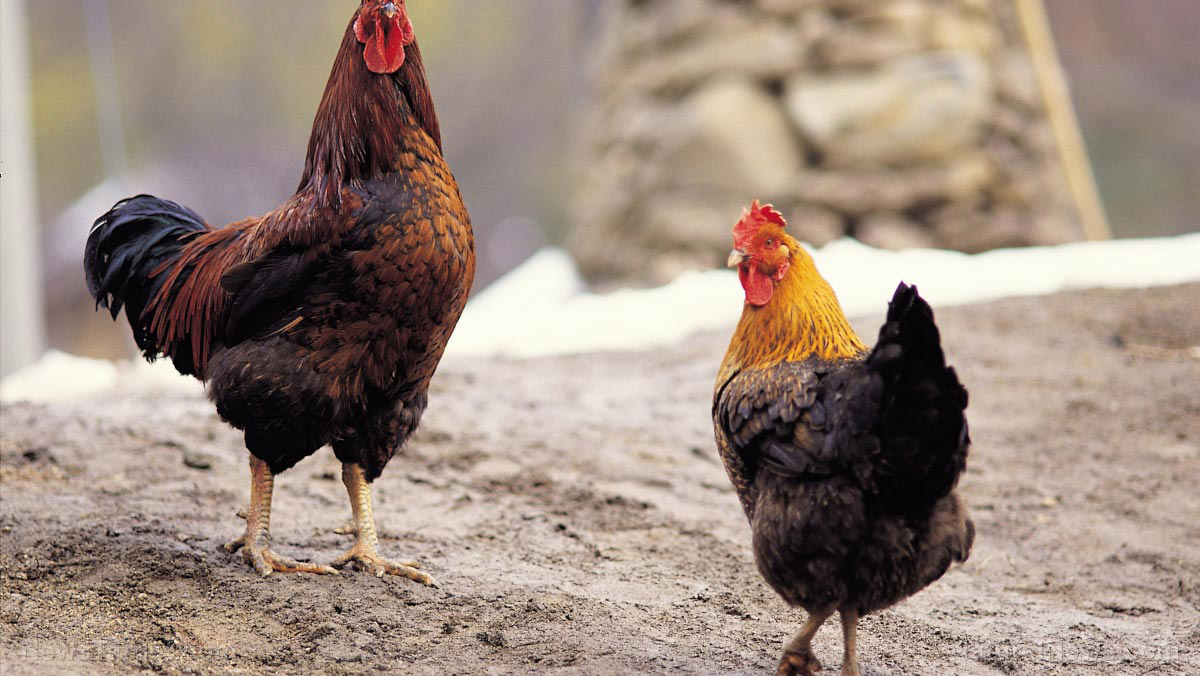Tuesday, April 08, 2025
Food supply 101: Top 12 cheapest foods to stockpile
06/22/2021 // Divina Ramirez // 17.1K Views
Tags: food independence, food supply, Gear, goodfood, preparedness, prepper, prepper's pantry, prepping, Stockpile, survival, survival food

Luckily, some of the best foods for stockpiling are extremely cheap, so you can buy them in quantities enough to last you several months. Here are some examples of cheap foods to stockpile:
- Rice – Rice is a staple food worldwide. It is also a versatile ingredient as it can be paired with various foods or cooked with various ingredients. When stored in an airtight container, rice keeps for six months. Rice is also cheap when bought in bulk.
- Pinto beans – Pinto beans can be cooked in bulk and used in soups and salads. Pinto beans are a cheap way to keep bellies full, too, since they are rich in carbohydrates, fiber and protein. Like rice, they will also keep for several months if stored in an airtight container in a cool, dry pantry. Buy pinto beans in bulk to save money.
- Lentils – Lentils are another legume that should be part of your emergency stockpile. They give you lots of calories, carbohydrates, protein and dietary fiber. Lentils are typically used in soups. But they also make great additions in potato salads, roasted vegetable salads, curries, and other savory dishes.
- Oil – Don't forget to stock up on oil since you'll need it to cook. Having oil on hand will also give you more variety since you can use it to make marinades, sauces and salad dressings. Choose healthy oils, such as coconut, sesame and olive oils.
- Flour – Bread is a staple in various diets worldwide. But bread can quickly go bad and moldy. So instead of buying ready-made bread, stock up on bags of flour. Flour is the single most important baking ingredient. If you have flour, you can make whatever bread or pastry you want.
- Cornmeal – Cornmeal is the main ingredient in cornbread, a staple in Native American diets. Cornbread will sustain you in a pinch. You can also use cornmeal to bread fish and chicken. (Related: Have a taste of frontier survival cooking with cornmeal pancakes.)
- Chickpeas – Chickpeas or garbanzo beans are a staple in the Mediterranean diet. Like other beans, chickpeas are also high in protein and dietary fiber. Buy chickpeas in bulk and store them in airtight containers for long-term storage.
- Pasta – Pasta is a good source of carbohydrates. Pasta also makes a great vehicle for hearty sauces, meat and dehydrated vegetables, among other ingredients. Because pasta is dried, it can keep up to two years past the expiration date printed on the packaging. Opened dry pasta will keep for one year.
- Oats – Old-fashioned rolled oats are a pantry staple. You can buy them in large bags and store them in a cool, dry place for long-term storage. Oats are also a versatile ingredient. You can use them to make overnight oats, no-bake granola bars and muffins, to name a few.
- Powdered milk – Forget about stocking up on cow's milk, which will inevitably go bad even when unopened. Stock up on powdered milk instead. You can use powdered milk to make all sorts of ingredients, such as evaporated milk, coffee creamer, yogurt, hot chocolate and cottage cheese.
- Meat – Meat can still be part of an emergency stockpile. For long-term storage, you can either cure meat with salt or portion it into airtight containers and place them in the freezer. You can also dry meat to make your own jerky. Check with your local grocery store or butcher for money-saving deals and promos.
- Dried foods – Don't forget to add dried fruits, vegetables and herbs to your emergency stockpile. These foods ensure you still get to eat healthy foods when SHTF. The best part is, you can dehydrate foods yourself. Stalky and starchy foods, such as potatoes, carrots and unripe bananas, are great for dehydrating. Follow this guide to dehydrate your own foods.
Learn more about building a stockpile at Preparedness.news.
Sources include:
Related Topics
food independence food supply Gear goodfood preparedness prepper prepper's pantry prepping Stockpile survival survival foodLatest News
Related News
07/16/2023 / By Cassie B.
07/16/2023 / By Lance D Johnson
07/14/2023 / By Laura Harris
Comments are turned off by Brighteon.
Take Action:
Support Natural News by linking to this article from your website.
Permalink to this article:
Copy
Embed article link:
Copy
Reprinting this article:
Non-commercial use is permitted with credit to NaturalNews.com (including a clickable link).
Please contact us for more information.
Please contact us for more information.





















